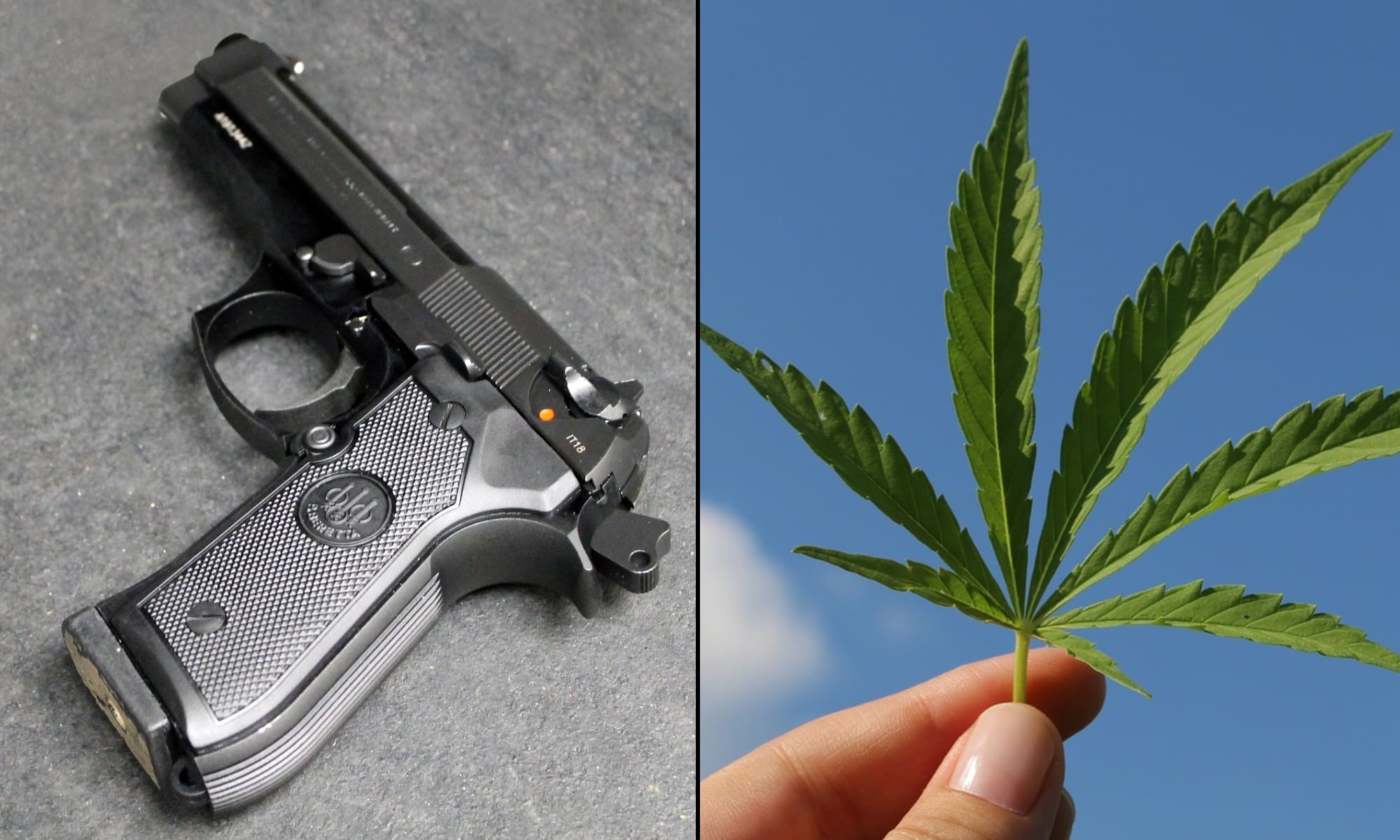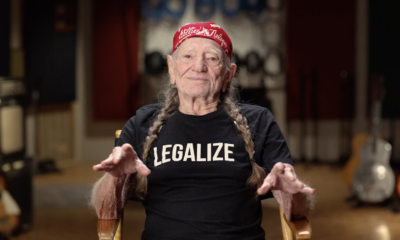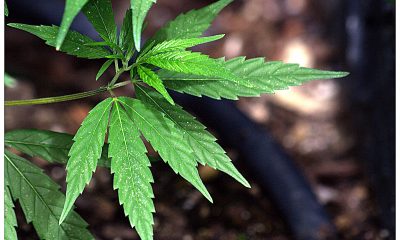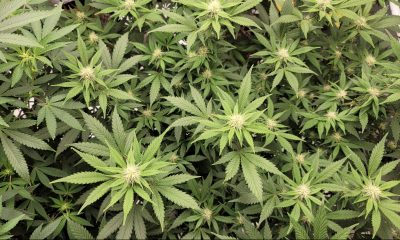Politics
Pennsylvania District Attorney Sues Federal Government Over Gun Ban For Medical Marijuana Patients

A Pennsylvania district attorney and gun rights advocates have filed a lawsuit in federal court seeking to overturn the ban preventing medical marijuana patients from buying and possessing firearms—the latest in a series of legal challenges to the policy.
Warren County, Pennsylvania District Attorney Robert Greene, a registered medical cannabis patient in the state, teamed up with the Second Amendment Foundation (SAF) to file suit against the federal government in the U.S. District Court for the Western District of Pennsylvania on Tuesday.
This comes as the question over the constitutionality of the federal gun ban for people who use marijuana is now before the U.S. Supreme Court, which is considering taking up the issue.
The new lawsuit names U.S. Attorney General Merrick Garland, as well as the heads of the FBI and Bureau of Alcohol, Tobacco, Firearms and Explosives (ATF), as defendants. This represents what the lead attorney for the plaintiffs believes to be the first civil, rather than criminal, challenge to the federal statute.
Greene’s participation in the case is especially notable. The court filing states that the local prosecutor “intends to lawfully purchase, possess, and utilize firearms and ammunition so that he may exercise his constitutional right to keep and bear arms for self-defense and all other lawful purposes.” But he’s barred from doing so under federal statute because of his status as a state-certified medical cannabis patient.
The prosecutor announced late last month that he will not be seeking re-election and will be turning his focus to advocacy on medical cannabis patient rights issues.
Unlike the various previous court cases challenging the constitutionality of the gun ban for plaintiffs who have been criminally prosecuted, with a civl suit like this, “you’re looking at a challenge on behalf of people that are just asserting that this prohibition is unconstitutional, either on its face or as applied—’as applied’ meaning to that individual only,” Adam Kraut, lead attorney for the plaintiff and executive director of SAF, told Marijuana Moment on Tuesday.
“What I’m hoping is not only to win in our lawsuit, but that it sparks the federal Congress to do something and solve this problem because you have millions of Americans who are disenfranchised from their Second Amendment rights, being forced to choose either between treating their symptoms with medical marijuana or exercising their constitutionally guaranteed right,” he said. “That’s not an acceptable.”
SAF has joined Warren County District Attorney Robert Greene in challenging 922(g)(3)'s prohibition on the possession of firearms and ammunition by medical marijuana card holders.https://t.co/8rFYseVfKM pic.twitter.com/LtUTaVgFtk
— SAF (@2AFDN) January 23, 2024
Meanwhile, the Congressional Research Service (CRS) recently highlighted that there are three relevant cases under consideration in the nation’s highest court that could finally settle the gun and cannabis issue.
Justices are expected to decide whether they will hear a federal government appeal of a circuit court ruling that found the firearm restriction violates the Second Amendment.
The ruling that DOJ is appealing came from the U.S. Court of Appeals for the Fifth Circuit, which examined the federal statute known as Section 922(g)(3) that prevents someone who is an “unlawful user” of an illegal drug from buying or possessing firearms. The circuit court found the policy unconstitutional as applied to a man who faced a conviction after admitting to having used cannabis while in possession of a gun.
Multiple courts have taken up the issue, forcing the Justice Department to defend the statute amid a series of challenges across the country. But the Fifth Circuit is so far the highest court to have ruled against the ban, covering jurisdictions in Mississippi, Louisiana and Texas.
A key component of the legal argument against the policy in most of the cases, including this latest civil suit, is based on an interpretation of an earlier Supreme Court case, where justices ruled that gun restrictions must be generally consistent with the historical context of the 1791 ratification of the Second Amendment. People challenging the federal statute argued that there’s no appropriate historical analogue, while DOJ has maintained that historical laws depriving guns from certain populations such as the mentally ill and habitually drunk justify its enforcement.
Section 922(g)(3) has also gained public interest amid the prosecution of President Joe Biden’s son, Hunter Biden, who has been charged with owning a gun while admitting to unlawful use of crack cocaine years ago.
Attorneys for Hunter Biden recently called on the U.S. District Court for the District of Delaware to dismiss the case, arguing that prosecutors are applying an unconstitutional statute that would criminalize millions of marijuana consumers acting in compliance with state law if broadly enforced.
Meanwhile, in a separate case in November, the Justice Department told the U.S. Court of Appeals for the Third Circuit that historical precedent “comfortably” supports the gun restriction. Cannabis consumers with guns pose a unique danger to society, the Biden administration claimed, in part because they’re “unlikely” to store their weapon properly.
The federal government has repeatedly claimed that historical analogues provide clear support for limiting gun rights for cannabis users. But several federal courts have separately deemed the marijuana-related ban unconstitutional, leading DOJ to appeal in several ongoing cases.
The Justice Department asserted similar points during oral arguments in a separate but related case before the U.S. Court of Appeals for the Eleventh Circuit in October. That case focuses on the Second Amendment rights of medical cannabis patients in Florida.
The U.S. District Court for the Western District of Oklahoma also ruled last year that the ban prohibiting people who use marijuana from possessing firearms is unconstitutional, with the judge stating that the federal government’s justification for upholding the law is “concerning.”
In U.S. District Court for the Western District of Texas, a judge ruled last April that banning people who use marijuana from possessing firearms is unconstitutional—and it said the same legal principle also applies to the sale and transfer of guns.
In August, meanwhile, the U.S. Bureau of Alcohol, Tobacco, Firearms and Explosives (ATF) sent a letter to Arkansas officials saying that the state’s recently enacted law permitting medical cannabis patients to obtain concealed carry gun licenses “creates an unacceptable risk,” and could jeopardize the state’s federally approved alternative firearm licensing policy.
Shortly after Minnesota’s governor signed a legalization bill into law in May, the agency issued a reminder emphasizing that people who use cannabis are barred from possessing and purchases guns and ammunition “until” federal prohibition ends.
In 2020, ATF issued an advisory specifically targeting Michigan that requires gun sellers to conduct federal background checks on all unlicensed gun buyers because it said the state’s cannabis laws had enabled “habitual marijuana users” and other disqualified individuals to obtain firearms illegally.
While people who use cannabis are barred from owning firearms under the statute, a little-notice FBI memo from 2019 that recently surfaced shows that the federal government generally does not consider it a violation of the law for medical cannabis caregivers and growers to have guns.
—
Marijuana Moment is tracking more than 1,000 cannabis, psychedelics and drug policy bills in state legislatures and Congress this year. Patreon supporters pledging at least $25/month get access to our interactive maps, charts and hearing calendar so they don’t miss any developments.
![]()
Learn more about our marijuana bill tracker and become a supporter on Patreon to get access.
—
This month, meanwhile, the South Dakota House of Representatives approved two bills aiming to better inform patients about federal restrictions on firearm ownership for people who use marijuana. One would require that medical cannabis patient applications include a written warning about the gun ban, while the other would mandate that informational signs be posted on-site at dispensaries while instituting daily fines for businesses that don’t comply.
Colorado activists are pursuing a proposed 2024 ballot initiative to allow marijuana users to obtain concealed carry permits for guns.
Florida Gov. Ron DeSantis (R), whose former agriculture commissioner is among those who’ve legally challenged the ban, also said last week that he believes the restriction violates the Second Amendment.
Republican congressional lawmakers have filed two bills so far this session that focus on gun and marijuana policy.
Rep. Brian Mast (R-FL), co-chair of the Congressional Cannabis Caucus, filed legislation last May to protect the Second Amendment rights of people who use marijuana in legal states, allowing them to purchase and possess firearms that they’re currently prohibited from having under federal law.
Senate Majority Leader Chuck Schumer (D-NY) has committed to attaching that legislation to a bipartisan marijuana banking bill that advanced out of committee last year and is pending floor action.
Meanwhile, Mast is also cosponsoring a separate bill from Rep. Alex Mooney (R-WV) this session that would more narrowly allow medical cannabis patients to purchase and possess firearms.
















